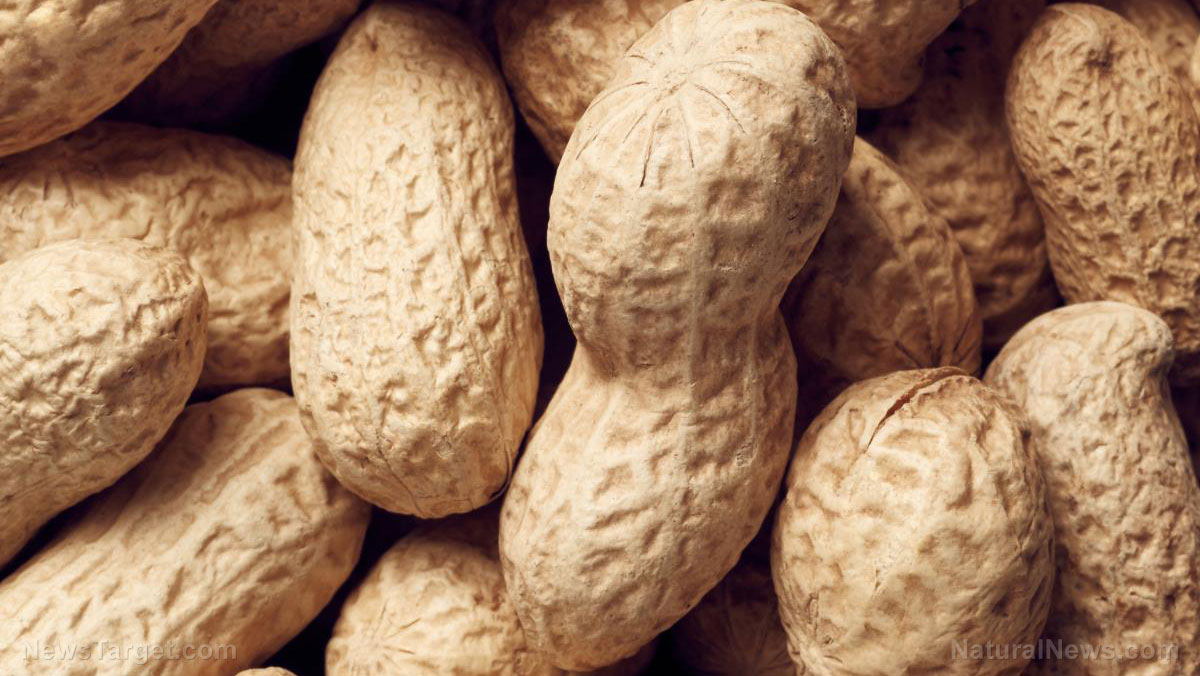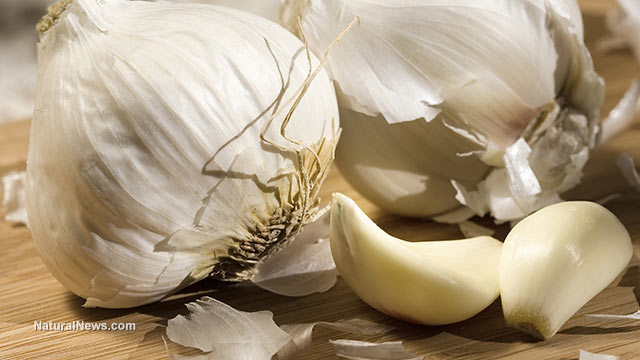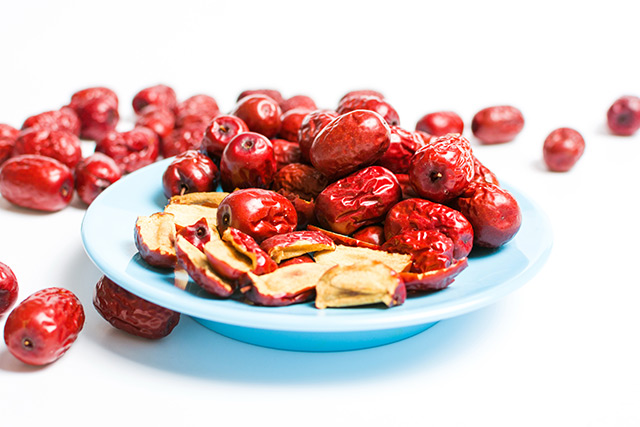 Parler
Parler Gab
Gab
- A clinical trial found that daily peanut consumption significantly improved verbal memory by 5.8 percent and increased global cerebral blood flow by 3.6 percent in healthy older adults.
- The findings are from a gold-standard, randomized controlled trial conducted by Maastricht University, providing compelling evidence that the benefits are directly linked to the peanuts.
- The increased blood flow is critical because age-related reductions in cerebral blood flow are a major contributor to cognitive decline and dementia. The benefits are attributed to peanuts' rich content of unsaturated fats, L-arginine (which produces circulation-boosting nitric oxide) and polyphenol-rich skins that support vascular health.
- This research offers a simple, affordable and sustainable dietary strategy for individuals to proactively protect their cognitive and cardiovascular health against age-related decline.
The nuts and bolts of a breakthrough
This was not a casual observation but a meticulously designed scientific investigation. Researchers employed a randomized, controlled crossover trial, considered a gold-standard method in clinical research, to eliminate bias and ensure the results were directly attributable to the peanuts. For 16 weeks, one group of 31 healthy adults aged 60 to 75 consumed 60 grams—roughly two handfuls—of unsalted, skin-roasted peanuts daily. Another group abstained. After a break, the groups swapped regimens. The outcomes were striking. The group consuming peanuts showed a 5.8 percent improvement in verbal memory, a critical component of daily life and communication. Perhaps even more significant was the change observed inside the brain. Using advanced arterial spin labeling magnetic resonance imaging (MRI), a non-invasive technique that measures blood flow, scientists documented a 3.6 percent increase in global cerebral blood flow.Why blood flow to the brain is everything
To understand the importance of this finding, one must grasp the concept of cerebral blood flow, or CBF. This term refers to the steady delivery of blood, and thus oxygen and vital nutrients, to the brain’s vast network of neurons. The brain is an exceptionally energy-hungry organ, and even a slight reduction in this fuel supply can impair its function over time. A robust CBF is a fundamental pillar of brain health. The study’s lead author explains that as people age, the vascular system that supplies the brain can become less efficient, a key contributor to cognitive decline and the onset of debilitating conditions like dementia. The finding that a simple dietary change can directly improve this blood flow is therefore not just significant—it is revolutionary. It suggests we have a direct lever to pull in the fight to maintain a healthy rain.More than just a snack: The nutritional powerhouse
The question naturally arises: what makes the humble peanut so potent? The answer lies in its unique nutritional profile. Peanuts are not true nuts but legumes, and they are packed with compounds beneficial for vascular health. They are an excellent source of unsaturated fats, the same healthy fats celebrated in olive oil and avocados, which are known to support flexible and responsive blood vessels. Furthermore, peanuts are rich in L-arginine, an amino acid that the body uses to produce nitric oxide. Nitric oxide is a powerful signaling molecule that relaxes and widens blood vessels, improving circulation. The study specifically used skin-roasted peanuts because the papery skin is loaded with polyphenols, natural plant compounds with antioxidant properties that combat cellular damage and further support vascular integrity.A global crisis demands accessible solutions
The timing of this research could not be more critical. The world is facing a dementia epidemic. According to Alzheimer’s Disease International, the number of people living with dementia is projected to skyrocket from 55 million today to 78 million by 2030 and a staggering 139 million by 2050. This looming public health catastrophe threatens to overwhelm healthcare systems and devastate families. In this context, the discovery that an inexpensive, widely available food can fortify the brain against age-related decline is profoundly hopeful. It empowers individuals to take a proactive role in their cognitive health. While not a magic bullet, it represents a foundational, evidence-based strategy that can be integrated seamlessly into daily life, complementing other healthy lifestyle choices.A simple prescription for a complex problem
The study participants simply ate their daily allotment of peanuts in the morning or afternoon, either all at once or spread throughout the day. The compliance was excellent, indicating that this is a practical and sustainable intervention for most people. The benefits extended beyond the brain, with participants also experiencing meaningful reductions in systolic blood pressure and pulse pressure, key indicators of cardiovascular health. "The nutrients in nuts that protect the heart also directly support brain function and memory. Nuts are rich in antioxidants like Vitamin E, which combat oxidative stress linked to cognitive decline," said BrightU.AI's Enoch. "Furthermore, they contain healthy fats and other compounds that support healthy blood vessels in the brain and may help reduce inflammation, both of which are crucial for maintaining sharp memory." This research adds to a growing body of evidence celebrating the brain benefits of certain foods, joining recent studies on nuts and beetroot juice. It shifts the narrative from treating neurological disease to preventing it, from complex pharmaceuticals to foundational nutrition. The path to preserving our most precious asset—our memory and mind—may indeed be found in a handful of peanuts. In an era of medical complexity, the simplest solutions often hold the most profound power. Watch and discover why eating peanuts daily is good. This video is from the Quick Treatment, Fast Result channel on Brighteon.com. Sources include: MedicalXpress.com clinicalnutritionjournal.com BrightU.ai Brighteon.comIntegrating cutting-edge tech, natural medicine and lifestyle changes to combat heart disease
By Jacob Thomas // Share
Ground-penetrating radar scans reveal compelling evidence of Noah’s Ark in Turkey
By Kevin Hughes // Share
Garlic helps keep diabetic hearts healthy
By News Editors // Share
Air pollution linked to increased breast cancer risk, study finds
By Patrick Lewis // Share
Unlocking the nutritional and medicinal benefits of Jujube fruit
By Ava Grace // Share
Ultra-processed foods linked to increased bowel cancer risk
By Ava Grace // Share
Governments continue to obscure COVID-19 vaccine data amid rising concerns over excess deaths
By patricklewis // Share
Tech giant Microsoft backs EXTINCTION with its support of carbon capture programs
By ramontomeydw // Share
Germany to resume arms exports to Israel despite repeated ceasefire violations
By isabelle // Share










